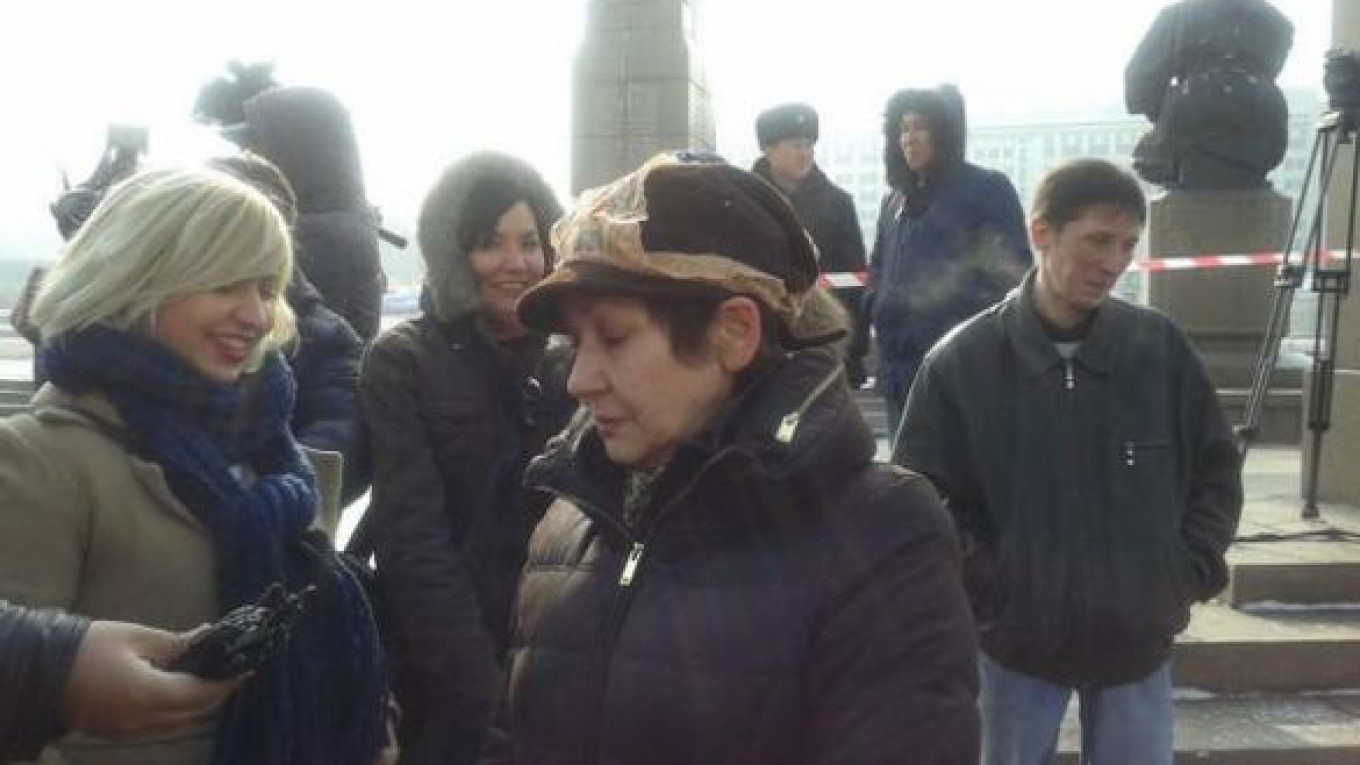Upcoming regulations restricting the diversity of Russians' underwear choices have met with resounding disapproval, including from protesters who were detained by police while wearing panties on their heads.
The production, import and sale of synthetic lace panties will be banned this summer within the Customs Union between Russia, Kazakhstan and Belarus, Gazeta.ru reported.
The law, which went into effect in the Customs Union in 2012 but not yet enforced, will ban underwear that does not reach a 6 percent threshold for moisture absorption, which aims to prevent products potentially harmful to consumers. Moisture absorption in many of the most popular synthetic material mixtures for lace panties is reportedly around 3 to 3.6 percent.
Lace panties will disappear from store shelves by July 1, 2014, said Valery Koreshkov, minister for technical regulations in the Eurasian Economic Union, the planned successor to the Customs Union.
Companies are supposed to be following the regulations already, though they are "pretending that they are new to them," he said, Itar-Tass reported.
The Russian Industry and Trade Ministry previously announced that it would try to overturn the Custom Union's rules regarding underwear after receiving complaints from clothes manufacturers.
News of the upcoming disappearance of lace underwear, sold everywhere from high-end lingerie stores to kiosks in Moscow metro station underpasses, has generated a swarm of news articles featuring pictures of women in lace panties and a flurry of activity on social networks.
Bringing in the other hot-button issue of the day — the possible euthanasia a giraffe at a Danish zoo — opposition leader Alexei Navalny tweeted: "Already the second day of my Twitter feed stuffed slightly less than full with lace panties. The giraffe Marius and lace panties."
Many young women expressed outrage at the ban and promised to stock up on undergarments before July.
The indignation was not confined to Russia, however. Kazakh women protesting the ban in Almaty on Sunday were detained by police after wearing panties on their heads, television station NTV reported.
A Message from The Moscow Times:
Dear readers,
We are facing unprecedented challenges. Russia's Prosecutor General's Office has designated The Moscow Times as an "undesirable" organization, criminalizing our work and putting our staff at risk of prosecution. This follows our earlier unjust labeling as a "foreign agent."
These actions are direct attempts to silence independent journalism in Russia. The authorities claim our work "discredits the decisions of the Russian leadership." We see things differently: we strive to provide accurate, unbiased reporting on Russia.
We, the journalists of The Moscow Times, refuse to be silenced. But to continue our work, we need your help.
Your support, no matter how small, makes a world of difference. If you can, please support us monthly starting from just $2. It's quick to set up, and every contribution makes a significant impact.
By supporting The Moscow Times, you're defending open, independent journalism in the face of repression. Thank you for standing with us.
Remind me later.


